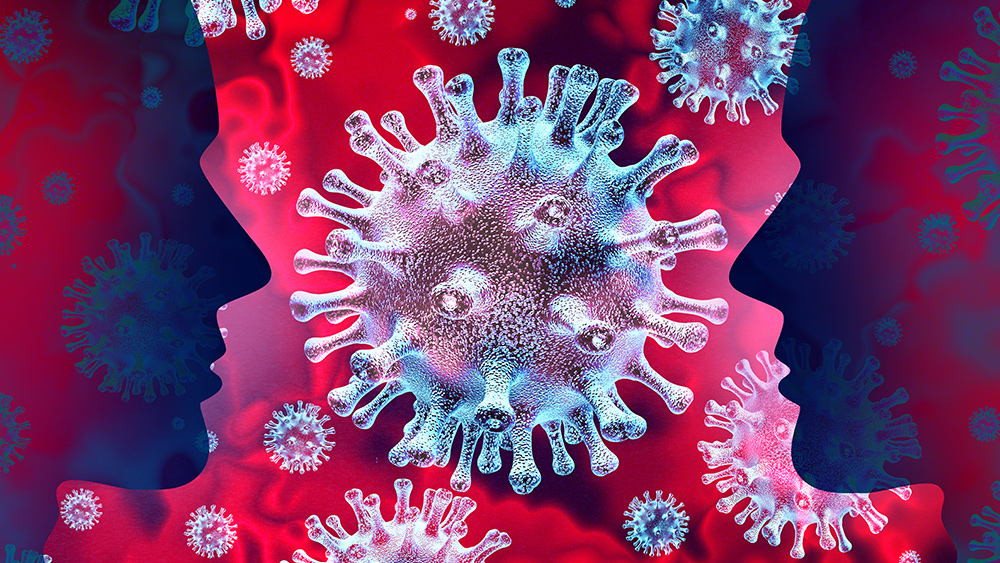Women who undergo in vitro fertilization more likely to have deadly heart disease
01/30/2020 / By Darnel Fernandez

Pregnancy complications could lead to severely negative health problems that could affect both the mother’s and the baby’s health. Some women could develop complications during pregnancy while others could develop problems before pregnancy or even after giving birth. Now, recent research suggests that women who undergo fertility treatment should consult their doctors for potential underlying heart failure symptoms.
A study presented at Heart Failure 2019, a scientific congress of the European Society of Cardiology, found that women who underwent fertility treatments have a higher risk of developing peripartum cardiomyopathy (PPCM). Also known as postpartum cardiomyopathy, PPCM is a rare form of heart failure that occurs during the last month of pregnancy up or up to five months after giving birth. Some of its symptoms include shortness of breath, swollen legs and waking up in the evening to urinate. According to the American Heart Association, about 1000 to 1300 women develop PPCM in the U.S. every year.
“It is very difficult to distinguish normal pregnancy discomfort from heart failure symptoms,” said study co-author Tobias Pfeffer. “Our study shows that the risk of PPCM is five times higher in women who have fertility treatment so they should be aware that this discomfort may not be benign. PPCM is often diagnosed much too late, with direct consequences on prognosis.”
In vitro fertilization could lead to heart disease
Growing success rates and an increase in affordability have led to the rise in the proportion of children born from assisted reproductive technology (ART) like in vitro fertilization and intracytoplasmatic sperm injections (ICSI). Researchers from the Hannover Medical School noted that pregnancy rates of artificial fertilization vary between 10 percent and 50 percent per cycle according to age and method. This means that women need to go through multiple rounds of treatment if their pregnancy does not start or is lost very early. According to senior author Denise Hilfiker-Kleiner, women who developed cardiac stress or impaired function should be aware that another cycle of treatment could increase their risk of developing PPCM.
For this study, the research team recruited 111 patients with PPCM and asked them to answer a standardized questionnaire on fertility and fertility treatment. They also gathered treatment details from various fertilization centers. Their findings revealed that women with PPCM had higher rates of subfertility — or difficulty in conceiving. Further, births using ART were five times more common in women with PPCM. (Related: Postpartum risk: Pregnant women found to have increased chance of heart failure in the three weeks following delivery.)
According to the researchers, this high prevalence of ART births and subfertility could possibly be related to shared risk factors. Hilfiker-Kleiner said that these women are, more often than not, older and their deliveries are usually by cesarean section — two risk factors for PPCM.
In addition, the researchers also believe that there could be genetic alterations that predispose these women to both subfertility and PPCM. However, these analyses are currently ongoing and there is no clear evidence that hormonal treatments could increase the risk of developing PPCM.
Finally, the team noted that the clinical outcomes of patients with PPCM were not worse in women with fertility problems, including patients who underwent fertility treatment, compared to women with normal fertility.
“Having IVF or ICSI is not associated with a worse prognosis from PPCM,” said Hilfiker-Kleiner. “However, as subsequent pregnancies after PPCM have a high risk for relapse, fertility treatment in PPCM patients bears a high risk for mother and fetus.”
You can read more stories on pregnancy and other complications at WomensHealth.news.
Sources include:
Tagged Under: assisted reproductive technology, cardiovascular disease, Diseases, heart disease, heart health, in vitro fertilization, Infertility, medical tech, peripartum cardiomyopathy, pregnancy, women's health



















